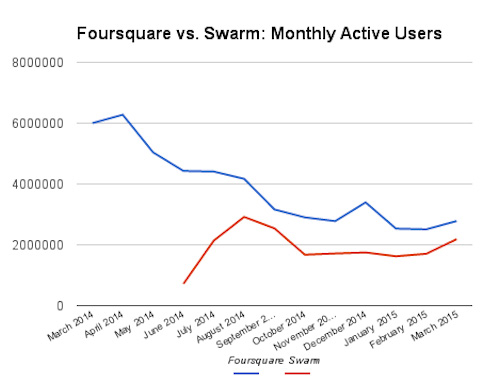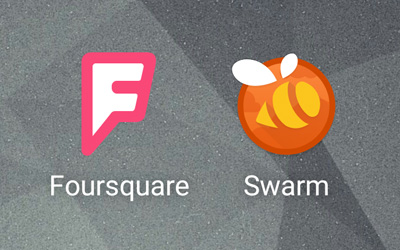Once upon a time there was a service called Foursquare, the developers made it very cool and interesting, so the popularity of the application grew very quickly and more and more people learned about it. New users signed up in hundreds, thousands, and due to this, Foursquare became more popular and, accordingly, more interesting. The trick was that the service combined several important components at once: it allowed them to receive useful information about different places in cities around the world, and, at the same time, offered users to constantly take part in the game, earning medals, 'achievements' and various rewards for visiting certain places. And then the developers took and simply killed Foursquare.

Perhaps the people in the company themselves did not fully understand how successful the balance between the useful and the game component was in their service. After all, both before and after Foursquare there were many applications where users had to leave reviews on various places: cafes, restaurants, shops, cinemas, and so on. But they didn't. At least as many as Foursquare did all over the world. And this is also important. The service has become popular not only in the United States, but also in other countries, where previously such applications could not achieve an audience growth and, as a result, a normal reviews base in terms of volume, making any such service attractive to a new audience.
Foursquare did it easily and naturally, largely because of the competitive nature of the service. Foursquare introduced the concept of 'check-in', 'mayorship' and added a spirit of excitement and struggle to the seemingly completely non-gaming sphere. People checked in and wrote reviews on new places, checked in daily at work, in cinemas and wherever possible to get the 'mayor' status of that place. On trips and travels, they checked into popular places, which means they visited them to get medals showing: 'yes, you are great, you have been to this city – keep the award.' A significant part of Foursquare's popularity was built on this, but one day the developers took and destroyed everything they had created themselves. In July 2014, Foursquare updates the site and at the same time brings all the possibilities of check-ins, mayorship and other “game” things into a separate application – Swarm. Whereas Foursquare itself remains a program where you can read and publish reviews on various places and search for them.

Yes, judging by the publicly available information on the number of users of the service, Foursquare was really experiencing problems and the company needed to do something to stop the outflow of people from the service, but, again, this graph shows that the release of Swarm and the division of the service into two especially helped in solving this problem. At the same time, the company, without solving one problem, the churn of users, created the second one for itself – the churn of loyal users who stayed with Foursquare all this time.


Today, the situation has not changed much – Foursquare lost a lot of customers over the year, Swarm rose slightly after launch, but did not become popular. The program takes place in the top lists of Google Play and the App Store in the second hundred only in the United States, the application is completely unknown in the world. Personally, I removed Foursquare the same day the developers removed some of the functionality from it and moved them into a separate app, Swarm. And often, when it comes to Foursquare, I see similar reviews from other people – they used Foursquare and liked it, but then they just uninstalled the app because the developers cut half the functionality out of it. What for?

Why do you think?
